Football Manager 2014: First steps in a new club
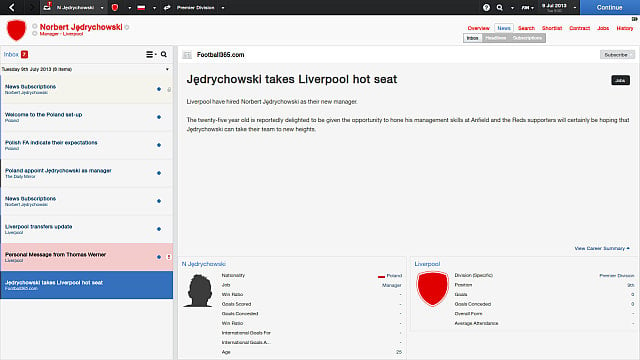
When you start your career in a new club, you often don't know where to start because in the beginning you don't get access to all tactical tools, training preferences etc. If you don't want to get lost in the vastness of possibilities, you should check out the list of things to start with so you can be like Jose Mourinho.
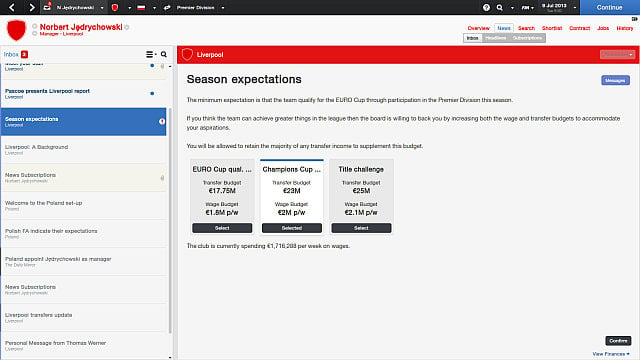
1. Choosing expectations for the season
It's the moment when you have to set a goal which you will pursue. Choosing expectations depends on a team that you manage. A beginner should aim for staying in the league, not winning cups. The choice is linked to two things: amount of money that the board will spend on budgets: transfer and wage and how you'll be seen if you don't accomplish the goals. Choose realistic goals so you don't find yourself in a situation when you want to fight for the cup and you're in the lower part of the ranking. The board definitely won't like it.
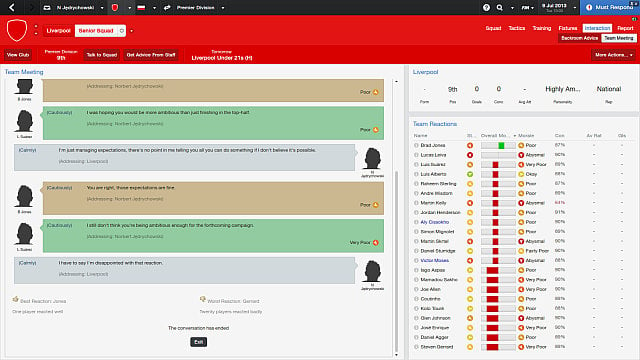
2. Meetings
Meetings with the board, assistant, journalists, team and the coaching staff are another important element. They will help you get to know the conditions in the club. You'll get team reports from the assistant, and some hints, often very useful, from the board. Pre-season talk with the team will boost their morale and cheer them on (or the other way, when, for example, you set your goal to "just" qualify for EURO cup when talking to a team that has a chance win a championship - the players might think that you're not ambitious enough). It's a good idea to appear in the media from time to time.
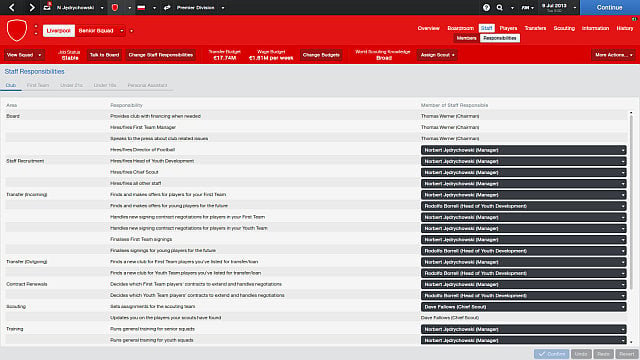
3. Staff responsibilities
Go to Staff responsibilities under the club menu to decide who's responsible for some tasks in your club. You can delegate some responsibilities (like contract renewals) to your assistants, you can also choose to manage the under 18s team yourself. You should mainly pay attention to the First team tab, where you can command your assistant to participate in conferences, do the pep talks and organize friendly matches.
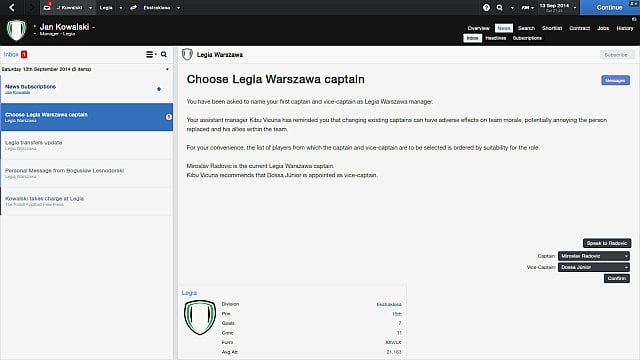
4. Choosing team captain
In the beginning of your career in the club and every season you'll be asked to choose a captain. Of course you can change a captain during the game, for example when the current one is seriously injured. To do it, go to Tactics->Captains. Changing the captain may have a negative impact on the team, especially if the previous captain had this title for a long time and has teammates' support. It will, however, have the biggest impact on the previous captain himself. Talking to him and warning about taking away his armband may reduce the negative effects. When choosing a captain, consider player's leadership and determination. The higher these values are, the better the captain.
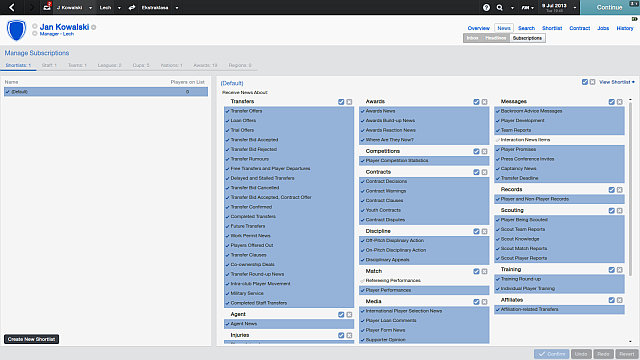
5. Subscriptions
Setting the messages that you want to receive properly lets you avoid dozens or even hundreds of emails that you simply don't want to read. You can miss an important message. To avoid that, go to Manage subscriptions in the options and choose only the subjects of messages that you want to receive. Yay! No spam.
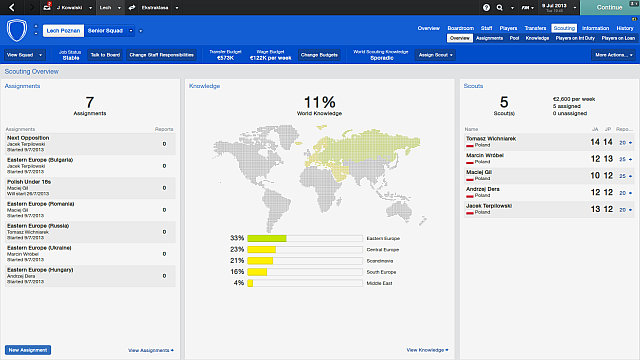
6. Scouting
A proper base of scouts will provide constant reports, sometimes about the next opponent, sometimes about some talented young boy from Africa. Properly distributed tasks let you discover very good players, often quite cheap, so you can strengthen your team at low cost. Try to expand your scouting network, the best way (but also hardest and most expensive) is to search all the world so right after a new star is born in Brazil, you sign a contract with him and you know everything about your enemies even before the match starts.
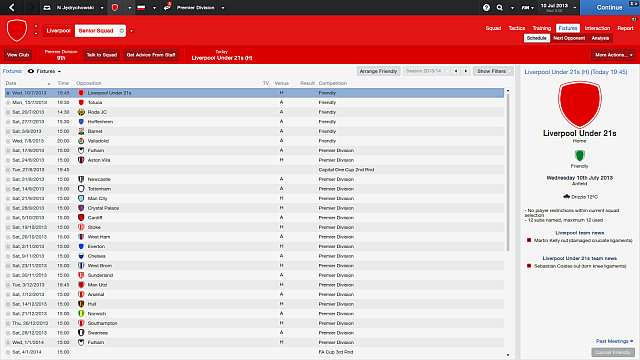
7. Friendly matches
If you didn't command your assistant to arrange friendly matches, you have to take care of it yourself. To do it, go to Calendar->Arrange friendly. It's a great way to test your team or some tactics, or to let the young, untrained players gain some After taking up a job in a new club it's a good idea to arrange a match with a U-21/U19 team etc., perhaps you'll find new, interesting players for your first team.
You are not permitted to copy any image, text or info from this page. This site is not associated with and/or endorsed by the developers and the publishers. All logos and images are copyrighted by their respective owners.
Copyright © 2000 - 2026 Webedia Polska SA for gamepressure.com, unofficial game guides, walkthroughs, secrets, game tips, maps & strategies for top games.
